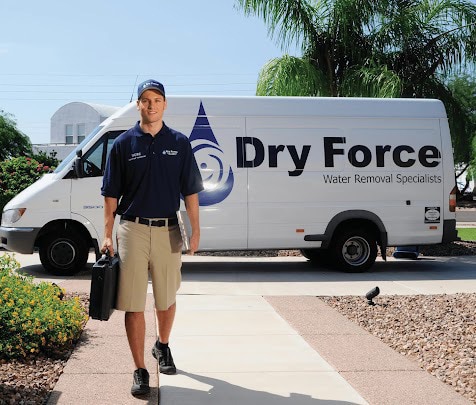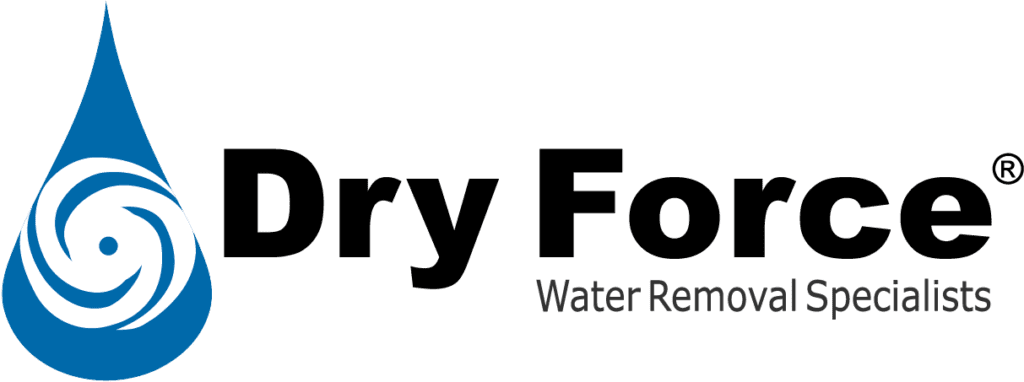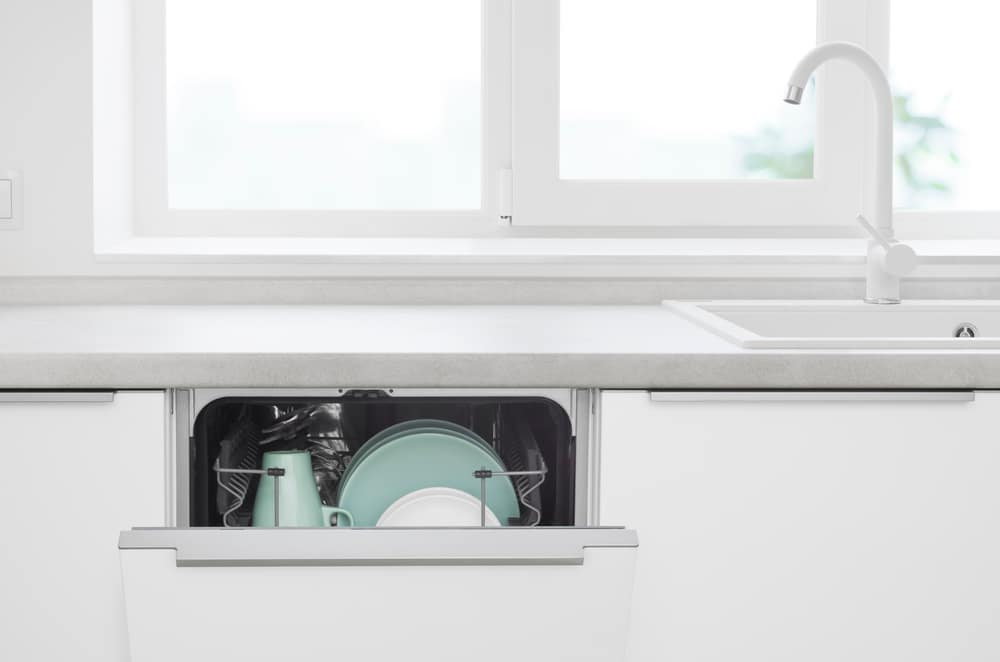
If you have been asking yourself, “Why is my dishwasher leaking?” recently, you need to find an answer before the damage is done. Are you noticing puddles of water coming from your dishwasher after each use? You might be dealing with a leak. While cleaning up a small puddle might not seem like a big deal, the problem can become much worse if left unchecked. In particular, a dishwasher leaking from the bottom can cause extensive water damage that needs immediate attention.
Table of Contents
Top Causes Why Your Dishwasher is Leaking
1. Damaged Dishwasher Door
The next time you run the dishwasher, check where the water is pooling. If it accumulates under the door, your issue is likely with the door. A loose or damaged dishwasher door may allow some water to seep through openings. Check the door latches to see if tightening them can resolve the issues. It may be worth replacing the gasket (the rubber sealing around the door) to ensure water isn’t escaping through there. Just be sure to unplug the unit before performing any maintenance.
2. Dishwasher Tub Leak
As your dishwasher blasts food particles with detergent and minerals found in water, it may wear down the tub. Over time a hole can form at the bottom of the tub, where water can leak out. You may be able to fix the tub, but if your unit is too old, you may need to replace it.

3. Loose Valves
Connections and hoses within your dishwasher can eventually become loose. If your dishwasher is leaking, the source of the issue may be loose clamps. Once the clamps are loose, the connection between the hose and the dishwasher will become insecure and may cause a severe water leak. To avoid water damage, check to ensure the clamps are secure. While you are at it, check that the water inlet valve is functioning properly. If it is stuck, it can easily cause flooding in your kitchen. You can replace a damaged hose with relative ease.
4. Incorrect Alignment
Check the balance of your dishwasher. Misalignment can result in the dishwasher leaking underneath the floor. If you have a level, place it on the bottom of the dishwasher. If it is not balanced, place it under the unit and remeasure until it is properly aligned.
Tips & Insights: How to Prevent Water Damage Under Your Kitchen Sink
5. Wrong Dishwasher Detergent
Do you normally rinse your dishes with dish soap before putting them in the dishwasher? It may be causing the leak. The soap on your dishes can bubble up and place pressure on the dishwasher door, resulting in water leaking. Avoid rinsing dishes with dish soap and putting any detergent not intended for dishwashers in your unit.
6. Dishwasher Overflow
Your dishwasher is designed to take in large amounts of water to clean your dishes and drain the excess water when finished. However, sometimes your unit can take in too much water and not properly drain it. If you notice a water leak in your dishwasher, the problem may be caused by a clogged dishwasher drain or a damaged float valve. Check your owner’s manual or the manufacturer’s website to see if there are instructions on resolving the issue.
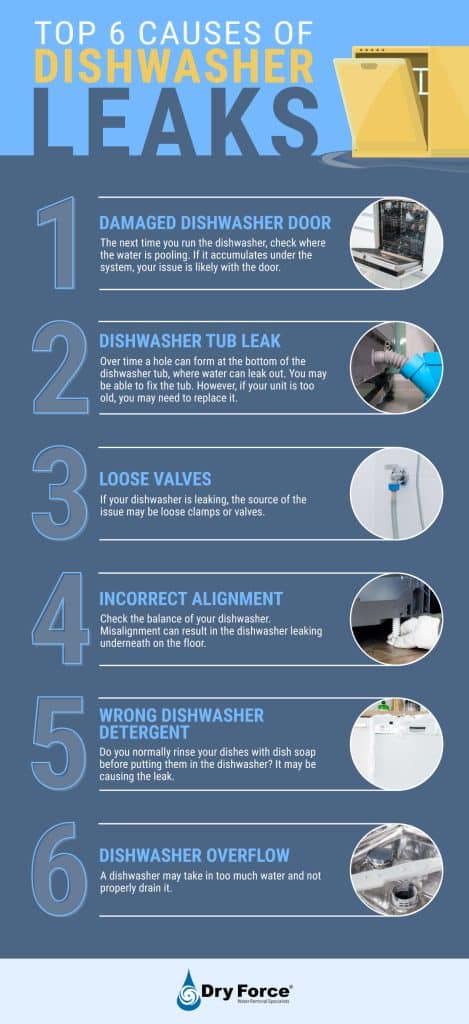
3 Ways to Stop Water Damage from a Malfunctioning Dishwasher
After finding out why your dishwasher is leaking, it is time to address the issue before too much damage is done. Here are some things you can do to stop water from damaging the rest of your kitchen.
1. Take a Look Around
Upon seeing your kitchen floor flooded, your first instinct might be to start cleaning up. Before doing that, ensure no power outlets, electrical appliances, or electronics are impacted. To be extra safe, turn off the power to your kitchen before cleaning.
With the power off, search the areas around your unit. Leaking water underneath your dishwasher may pool on the floor and surrounding drywall. In addition, check your cabinets for water damage as you are inspecting your kitchen for water damage.
2. Inspect As You Clean
A mop can take care of standing water, but the floor underneath your leaking dishwasher may be at risk if not addressed. Here’s what you should do:
- Unplug appliances and pull out your unit if possible
- Mop up water and under any appliances
- Examine drywall, cabinets, and floor underneath the unit
- If you have a fan or fans, run them to create cross-ventilation
- Over the next few weeks, continue inspecting all affected areas for mold
Tips & Insights: When to Replace Subfloors With Water Damage In Your Home
3. Contact a Water Damage Restoration Company
Suppose you are looking at severe water damage to your kitchen. Before stressing out about the costs of restoring your kitchen, call a restoration company like Dry Force. We work with all insurance companies and can even help you in the claim filing process.
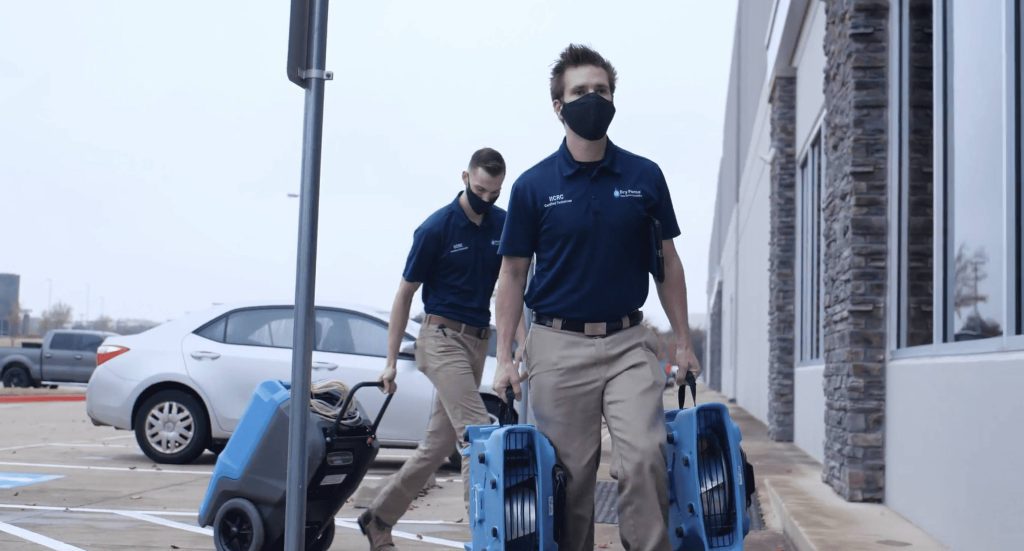
Water Appliance Water Leak Restoration Services
No one wants to walk into a flooded kitchen, but occasionally it happens. When it does, you should call the restoration specialists at Dry Force immediately. Our team of technicians offer dependable appliance water leak restoration services for homes and organizations. We are here to help you resolve the issue and get your kitchen back to its pre-loss condition.
Severe water leaks can be stressful to deal with, especially when it comes to dealing with insurance. That is why we help our customers file a claim with their provider. Our technicians provide trusted water and flood damage restoration services in Dallas, TX and other areas. In addition, our contractors provide other types of restoration solutions such as storm damage repair, crawlspace drying, and burst pipe restoration. We provide fast and reliable water leak restoration and repair services that are available to you 24/7. Give our team a call by phone at (877) 589-7504 to receive assistance with water damage.
